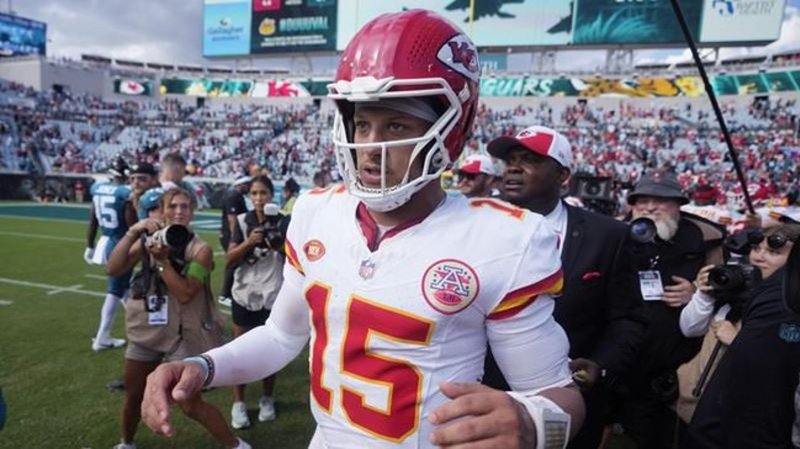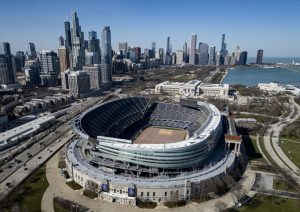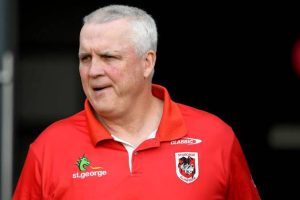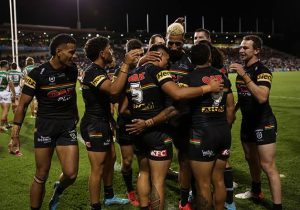
The Royals and Chiefs announced they have completed a Community Benefits Agreement for the proposed downtown ballpark and Arrowhead renovation. Unfortunately, it seems much of the community was missing when the agreement was announced. In a bit, I’ll go over why they were missing, who was still there, and what the agreement entails. But first, let’s have a little context about why there is a Community Benefits Agreement and why you should want to see a good one.
What is a Community Benefits Agreement?
Put simply, a Community Benefits Agreement (CBA) is a deal between the teams and community groups affected by the stadium’s construction that the teams will meet certain standards to help improve the community they are affecting. It is, notably, not a deal with the county government, though the county government can – and in this case, did – agree to help enforce it.
Without such an agreement, things can go downhill fast for people who live or work in that community. A new stadium and associated construction could displace existing homes and businesses and increase property values and rents of those nearby that remain. A CBA should ideally ensure that even with those changes, the lives of the community members are improved. Less ideally, it should at least reduce the harm as much as possible. Royals team owner John Sherman promised the agreement the team would enter would be “historic,” “unprecedented,” and “transformative.” He clearly wanted everyone to believe that the agreement would be closer to the ideal than not.
Local community organizations say that isn’t happening
On Friday, March 15, the Missouri Workers Center and Heartland Center for Jobs and Freedom left the negotiation table because they felt the team was not committed to following through on those promises. Here’s a comparison of where the two sides stood, according to that article:
Original proposal from county coalition
Royals and Chiefs to provide affordable, 24-hour childcare on site or less than half a mile from the stadium and subsidize the cost so it doesn’t exceed 7% of the average income
$1 million toward transit-oriented improvements on the stadium site, plus $1 million annually for the duration of the sales tax to support KCATA zero-fare
$3 million annually for the duration of the sales tax into anti-violence and mental health awareness initiatives
Adopting an environmental climate policy within a year of opening the stadium. Working with contractors to limit the carbon footprint of the stadium. Establish a solid waste recycling program for food and beverage waste.
Royals’ latest proposal
$2 million during the construction period (about 3 years) to partner with a child care center near the stadium site
$2 million in partnership with the KCATA to provide game day transportation
$3 million invested over three years into anti-violence and mental health awareness initiatives
$10 million to construct the stadium following Leadership in Energy and Environmental Design Gold certification requirements
From this Kansas City Star article, we also know that the county coalition initially proposed an affordable housing fund for the teams to contribute that would include a total of $100 million upfront and $5 million per team per year to increase affordable housing in the community. My understanding is that the coalition later came down from that number but the best the Royals ever offered was $5 million total over the life of the 40-year tax extension – a number that is only worth just shy of 22 homes of the average price in Kansas City. Assuming that it costs something more like one-fifth of that to simply build the homes, the Royals could build 100 homes in 40 years. Does that seem historic, unprecedented, or transformational?
As I noted during the Royals Rundown podcast last weekend, the Royals` proposals appeared centered around not committing to any recurring amount and, as much as possible, benefiting themselves more than their community. You can see this in how they only offer to improve child care during the construction of their facility and only offer to improve public transit on game days.
On Tuesday, March 19, the Good Jobs Coalition held a press conference/rally on the steps of the Jackson County courthouse to ask people to vote no to the sales tax extension.
“Any CBA that comes out, we should make very clear, is not actually a community benefits agreement,” said Gina Chiala from the Heartland Center for Jobs and Freedom. “The community is not at the table.”
Who is at the table?
There does not appear to be an official list of every group that ever participated in the negotiations at the county table for the Community Benefits Agreement with the Kansas City Royals. As best I was able to determine, there were somewhere between six and ten organizations at the outset. What is clear, after discussing the matter with several people with knowledge of the situation, is that every organization that started at the table walked away from the public negotiations for one reason or another before they were completed except two: Urban Summit Kansas City and the Urban League of Greater Kansas City (ULKC). Gwendolyn Grant, President and CEO of ULKC, has led the negotiations for the community side from the start.
However, there is one very curious detail about ULKC that I have not seen reported anywhere else. If you check the executive board members of ULKC you will find that they count among their number Vice Chair Adam Sachs – the Senior Vice President of External Affairs and Chief Legal Counsel for the Kansas City Royals.
Let me say that again. The Royals’ legal counsel is also an executive board member for the organization who has led the negotiations from the other side and is one of only two organizations to still be present when the agreement was struck.
So not only did most of the involved organizations leave the bargaining table, but one of the two that is left, and the one that was leading the entire time, has a strong executive connection to the Kansas City Royals. That sure seems suspicious.
I reached out to the Kansas City Royals for comment on this matter, but they declined to comment on the record.
So what does this mean?
Perhaps unsurprisingly, given the way everything about the Royals’ new stadium plan has been shrouded in secrecy, when the teams announced their new CBA it had absolutely no details about how the alleged programs would function or how the money would be distributed. As we can see from the quoted comparison above, there wasn’t much disagreement about WHAT things should be addressed, the differences were in the HOW MUCHes and WHEREs and WHENs of the thing.
The Chiefs & Royals have announced their CBA with Jackson County. pic.twitter.com/fDvXFa8DRr
— Alex Gold (@AlexGold) March 20, 2024
The Chiefs and Royals have indeed announced a completed CBA for their stadium proposals, though the announcement came without a copy of the agreement.
— Sam McDowell (@SamMcDowell11) March 20, 2024
Councilman Manny Abarca, who has been very pro-Royals on this situation from the beginning, did tweet out the official documents after a couple of hours.
Binding documents dictating the foundations of the Royals deal. #kansascity @JacksonCountyMO pic.twitter.com/648SZCU9Bl
— Manny Abarca (@MannyAbarcaIV) March 20, 2024
One thing of particular note to me from even the vague details provided in the first embedded tweet is that the Royals and Chiefs both have some say in the formation of the board that will oversee, audit, and ensure the accountability of the programs. It seems kind of pointless to let the teams help oversee themselves in these matters.
Also of note is that while the team cited the recent CBA between the Milwaukee Bucks and their community, that agreement was for $250 million on an arena that cost approximately $500 million to build. In that light, $140 million or even $260 million for what is estimated to be well clear of a billion in taxes and other tax breaks does not seem historic, unprecedented, or transformative for the community.
From the “more detailed” documents we can see that the Royals are promising $3.5 million every year into a fund that the aforementioned board will then deploy toward the various causes. There does not appear to be any language dictating how they do so, other than it must happen at least annually.
So, basically, there are still no concrete details about how the money will be used to better the lives of Jackson County citizens, the Royals will still largely be policing themselves, and even in the best-case scenario, the team appears to believe that the county’s people are worth less than one Adam Frazier late-offseason signing per year.
Based on my reading of these documents, the Royals could feasibly pay themselves $3.5 million to send players out on speaking engagements to raise awareness for mental health and that would meet the incredibly loose guidelines for their obligations to the CBA for that year.
Seriously, with absolutely no details and no oversight, there will be no way of knowing if or how the Royals’ money is used to help people. Based on the secretive nature and vague statements the team has thrived on since John Sherman’s purchase, I can’t imagine they’ll even pretend to tell us, either. I expect this to fade completely into the background once they secure their yes votes.
Really, this just continues a pattern that we’ve seen from the team in the past few years to provide as few hard details as possible, to exaggerate the ones they do provide, and to generally obfuscate the truth behind big promises and plenty of hype.
On the vote
You can vote however you want on this issue. Your choices won’t affect me. I don’t live in Kansas City. Honestly, it would probably be better for me if you did vote yes because once the tax is in place and the teams can’t be stopped there will probably be a lot fewer visible shenanigans to cause me to lose sleep researching to provide you all the best information about the team’s workings I can find.
I would be able to go back to talking about the team, which I honestly think might be sneaky good this year. I could get excited about whether Bobby Witt Jr. might win an MVP award or Cole Ragans might get some Cy Young votes.
But, if I did have a vote and it did affect me, I’d vote no on this and I wouldn’t look back.
I know a lot of you have problems with Frank White, but I think he made a very salient point in his tweet announcing that he would be voting no.
No surprise here…
My statement on why I’m voting no on April 2. pic.twitter.com/4kFrVYAisB
— Frank White (@JCEFrankWhite) March 20, 2024
That final sentence is what I’m talking about, “Thankfully, voters have the opportunity to reject the new tax on April 2 and if they do, we can do this the right way.” If the new tax fails to pass, that doesn’t automatically mean the teams will leave Kansas City. The reality is that Clark Hunt and John Sherman are both so embedded into the city that neither is likely to move the team themselves. It would be much more likely that they either resume negotiations with the county and community – hopefully leading to a more transparent and equitable outcome for the taxpayers – or they’d have to find someone to sell their teams to who would then have to figure out how to move them. In that scenario, continued negotiations seem the more profitable and less onerous option for both of them.
But even if they did move or sell the teams, would that really be a worse outcome than continuing to allow people with so much money to abuse their positions and deceive people the way the Royals appear to have been attempting to do?
I spoke with Terrence Wise of Stand Up KC and the Missouri Workers Center in the wake of the announcement. Along with echoing a lot of my above statements, he indicated that the team appeared completely disinterested in providing any community benefits in the form of truly affordable housing. The coalition tried to take those negotiations from the public county table to the private negotiations







